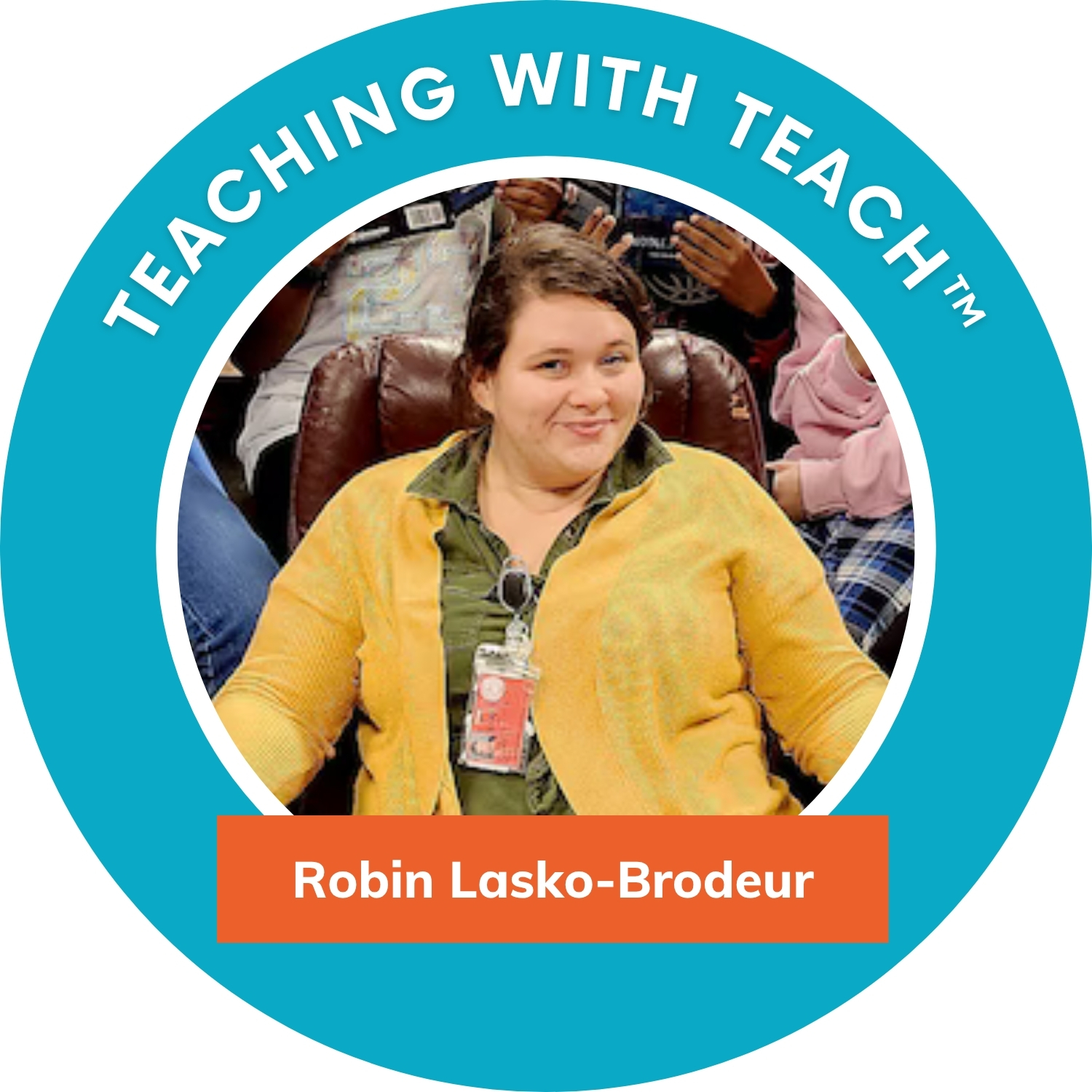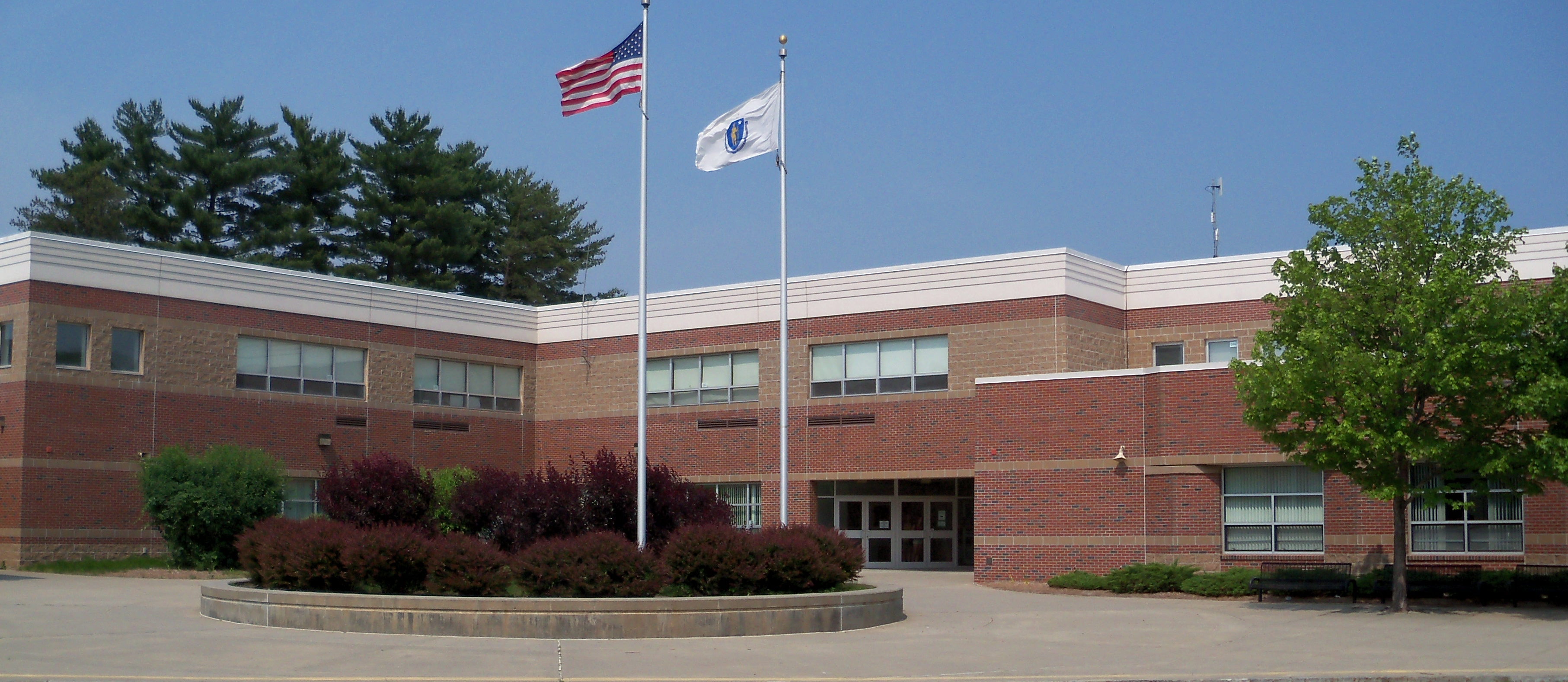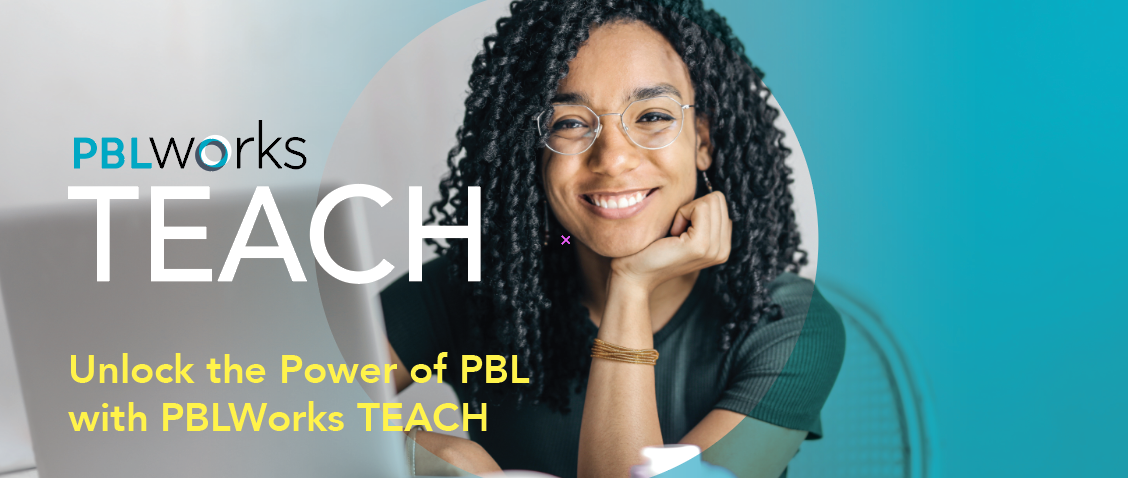
We had the opportunity to talk with Robin, a math educator at Westfield Intermediate School in Westfield, MA, who recently piloted two of our PBLWorks TEACH Math units: Pack Perfection and Community Recipes.
Robin embraced the challenge of shifting from traditional instruction to a project-based approach—something she had already begun exploring through another initiative at her school. From deepening student engagement to building social-emotional connections and community partnerships, her classroom became a vibrant space of discovery, collaboration, and joy. And the biggest outcome of all? A powerful shift in how students saw themselves—as capable, curious mathematicians.
Tell us a little bit about yourself and your journey as an educator.
Robin: I’ve been teaching for ten years. I began my career in an urban school, teaching reading and writing for seven years. When I moved to Westfield, I stepped into a math and science role—entirely outside my comfort zone—but I was ready to say, “Yes, let’s try something new.” That’s become my mantra over the past three years. We adopted a new science curriculum that transformed how I teach to better meet my students’ needs. This year, we brought that same mindset to math through PBL with PBLWorks TEACH units. It’s been a wild ride, but it’s made me a better teacher.

What was the shift like moving from traditional teaching to PBL?
Robin: At first, it was a struggle. Instead of delivering information, you’re now guiding students as they unearth the information themselves. It’s a total change in perspective. It's not about getting the answer right anymore. It’s about making mistakes, going back, and eventually understanding how and why something works. That’s been powerful.
What were the two PBL projects you implemented?
Robin: We did the Pack Perfection project in September, just two weeks into school. Then, we did the Community Recipes project between Thanksgiving and Winter break.
In Community Recipes, students explored ratios and proportions by scaling family and community recipes for different occasions. Then in Pack Perfection, students applied their understanding of area and volume to design custom backpacks for real clients—combining function and style to meet each person’s unique needs.
What felt unique about these PBL units compared to other curricula?
Robin: I really enjoyed the continuation across days. Students were building to a bigger end together rather than jumping from topic to topic. That sustained learning across 19 lessons was amazing.
Another standout was the hands-on aspect. For example, on the first day of the Community Recipes project, we gave students ingredients to make cookies without instructions. Watching them problem-solve, draw conclusions, and work things out without my help was incredible. They were already using their knowledge of ratios, just presented differently, and that allowed them to express what they knew in such an engaging way!
Did you observe other skills being developed beyond math?
Robin: Absolutely. There was a lot of social-emotional growth woven into the math curriculum, which was a huge plus. Students connected with each other, their families, and even their cultures.
I invited students to bring in a family recipe that had been passed down through generations. Some shared meaningful recipes from places like Ukraine. For those who struggled to make that kind of connection, we pivoted—they chose a favorite food and researched a recipe for it instead. It was a small shift, but it led to powerful moments of connection and storytelling. What started as a math unit turned into something much deeper, full of meaningful conversations and moments of connection that helped me understand my students in a whole new way.
"What started as a math unit turned into something much deeper, full of meaningful conversations and moments of connection that helped me understand my students in a whole new way."
The Pack Perfection project really stayed with me because we were also teaching essential life skills—how to conduct an interview, how to show respect in a conversation, how to truly listen to someone’s ideas and needs, and then design something meaningful based on that input. Those are the kinds of skills you only develop through real experience. And let’s be honest—12-year-olds don’t often get the chance to interview adults like that. It was authentic, meaningful learning.
What would you say to math teachers who believe they can’t do PBL?
Robin: I hear that a lot. My response is: PBL isn’t a year-long curriculum. It’s 19 lessons. That’s three weeks. And the impact from those three weeks on math understanding, interpersonal growth, and community connection is huge.
In the Pack Perfection project, community members came in for interviews. Students wanted to show them their final projects, which showed just how invested they were. They learned life skills like conducting interviews, listening to feedback, and translating needs into designs. You don’t learn that from a worksheet.
Were the required standards addressed in the PBL units?
Robin: Yes, the standards were absolutely addressed. We did have to incorporate some practice, but the core content was all there.
I was also in constant contact with National Faculty member Bryon Demerson, asking for help and feedback. He was incredibly responsive and open to adjustments. That flexibility, and knowing the curriculum is still evolving, makes it feel like we’re all learning together.
Were there any new tools or strategies that stood out to you as a teacher?
Robin: One thing I really appreciated was the Ultimate Classroom—an eight-day start-of-year lesson set that helps build classroom culture: kindness, emotional expression, risk-taking, and non-judgment. Even if you're not doing PBL, those are lessons every teacher should do. It sets the foundation for a collaborative and respectful learning space. That stood out to me as a key selling point.
What’s the biggest promise or impact of PBL on students?
Robin: It completely changes students’ attitudes. I used to hear, “I hate math” all the time. Now, none of my 45 students say that anymore. They might not say they love math, but they no longer hate it—and that’s a huge win.
PBL showed them they can do math, even if it looks different for each of them. It empowered them to think differently and believe in themselves. I was a kid who hated math and didn’t pursue a math-related career because I was scared. These students are walking out of my classroom with a mindset of, “Wait, I can do this.” And that’s probably the best thing I could teach them.
🎥 Hear it from Robin.
In this short clip, Robin shares how her students’ mindsets toward math transformed as a result of these meaningful Project Based Learning experiences.

